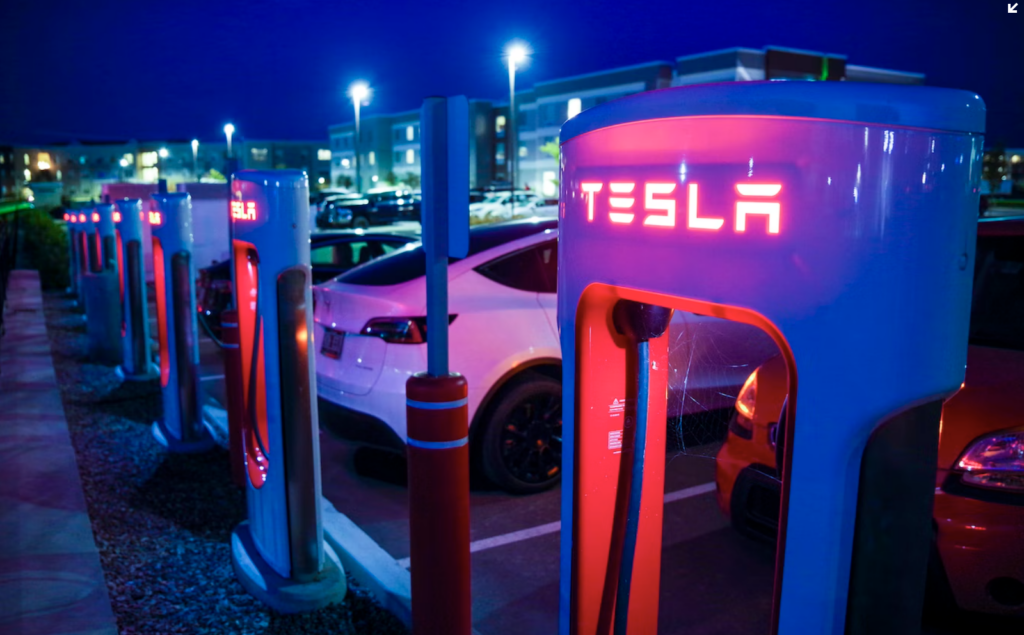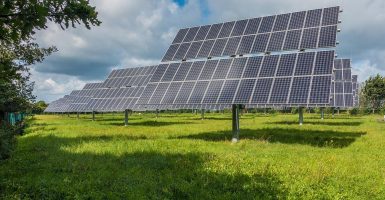Electric Vehicle Sales Are Exploding In An Unexpected Market
Due to the Chinese government's attractive incentives, electric vehicle sales are surging in China, but it is unclear if sales will stay elevated after the government incentives end in 2023.
This article is more than 2 years old
One country is zooming ahead of the United States and Europe in the race to get more electric vehicles on the world’s roads. Nearly one-fourth of all cars newly registered in China are electric or plug-in hybrids. In fact, half of the world’s electric vehicles are now being sold in China, with Tesla reporting record sales there in September—83,135.
Although the demand for electric vehicles is surging worldwide, China’s trend toward EVs has been largely driven by the Chinese government’s mandates and incentives. For over a decade, the government has subsidized the purchase of electric vehicles and made it less appealing to choose fossil fuel-driven vehicles instead. However, these enticements have dropped in value over time and are set to end by 2023.
Even without government mandates, buying an electric vehicle is becoming an easy decision in China. EVs are priced much lower than gas-powered cars and there is even an option to get a small, no-frills vehicle that costs around $4,500. These tiny cars are hugely popular with first-time car buyers and city dwellers who can get access to free parking spaces in their Wuling Hong Guang Mini EVs.
The Chinese government further boosts the appeal of electric vehicles by allowing their owners to drive in bus lanes. Beijing banned gas-powered taxis five years ago and made it easier for taxi drivers to make the switch. Instead of wasting time waiting in line at EV charging stations, taxi drivers simply pull up to a battery charging station where a machine switches the depleted battery with one that’s fully charged.
In July, the China Passenger Car Association estimated that 2022 would see six million new electric vehicles registered in the country, surpassing its original estimate of 5.5 million new EV purchases in 2022. Again, the government makes it easier to choose an EV. Shanghai issues free license plates to drivers who buy electric vehicles, while those choosing fossil fuel-powered cars can pay up to $14,000 to register their vehicle.

Car buyers are choosing to invest in higher-end EVs instead of spending that much on a car tag. Tesla’s Model Y and Xpeng’s P7 are two of the more expensive electric vehicles appearing on the list of top 10 EVs in China. The Tesla Model Y costs around $54,000 and the Xpeng P7 is nearly $20,000 less, at around $33,700.
The Chinese market for electric vehicles is highly competitive, with companies around the world seeking a place in it. EV manufacturers are adding perks such as high-tech infotainment systems to lure Chinese customers to their vehicles. Meanwhile, Chinese EV manufacturers are now marketing their vehicles in Africa, Latin America, and other locations overseas.
With more electric vehicles on China’s roads, the demand for electricity increases but maintaining the grid is something the country has struggled with at times. Charging stations are not evenly distributed throughout the nation and some recently had to close due to a drought-driven fall in electricity production. Electric vehicles are flying out of Chinese car dealerships but many wonder how next year’s subsidy removals will influence the current frenzy for new EVs.







